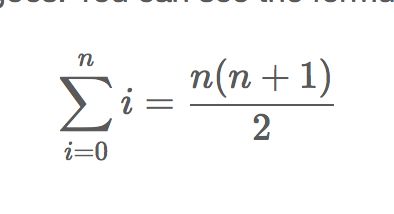- JAVA 和Python对比
xiayu98020214
在深蓝的日子python
JAVA和Python对比1.数据类型pythonInt,float,complexnumbers都没有定义到底占用多少个字节空间。都是没有取值范围,也没有无符号的情况。JAVAJAVA有基础数据类型,都有确定占多少个字节2.全局变量python类似c语言,可以定义全局变量,全局的函数。JAVAjava都要定义类才行。3.变量声明python无需声明类型,直接使用。会造成一个困扰,这个变量到底是新
- JavaScript基本语法(二)——数据类型
OmewSPG
常用数据类型#ECMAScript有6种简单的数据类型(原始类型):Undefined,Null,Boolean,Number,String和Symbol(ES6新增Symbol类型的值,在此不会过多涉及)此外还有一种复杂的数据类型:Object在ECMAScript中无法定义自己的数据类型,所有值都必须采用以上七种数据类型之一来进行表示,好在ECMAScript数据类型比较灵活,一种数据类型可以
- jasper模板支持动态生僻字显示
小瞿慢慢跑
java基本知识jasper生僻字
jasper模板支持动态生僻字显示包引用jasperreports5.5.1itextAsian.jarireport3.1.0.jar(报错就引入)如果包找不到字体,可以添加配置文件在项目根路径下jasperreports.properties(里面内容如下)net.sf.jasperreports.awt.ignore.missing.font=true主要思路如下:替换JRPdfExport
- enq: HW - contention
jnrjian
oraclesql
Symptoms1.Thereisaperformanceslowdownwithalargenumberofwaitsfor'enqHW-contention'.2.ASHReportsshowsthewaitevent'enqHW-contention'whichincludesSQLwithLOBObjects.CauseTheHWenqueueisusedtomanagethealloca
- cx_Oracle.DatabaseError: DPI-1043:invalid number
数据-脚本-资源-管道
oracle数据库
在使用cx_oracle的connect.executemany批量插入数据进入表中时同一张表的同一个字段的两条数据中存在一个类型为number另一个类型为varchar2时,批量插入varchar2字段的表中也会提示上述错误。如果是直接插入字符串类型数据到number字段类型的表中会报错:ORA-01722:invalidnumber而不是DPI-1043的错误。
- TypeScript中type的用法
无风听海
HarmonyOStypescript前端
在TypeScript中,type关键字用于定义类型别名。通过type,可以为现有类型创建一个新的名称。这对于简化复杂类型、提高代码可读性和避免重复声明类型非常有用。基本语法typeTypeName=;TypeName是你要定义的类型别名的名称。是你想要别名的现有类型或类型组合。type关键字的使用场景1.基本类型别名你可以为一个基本的类型(如number、string、boolean等)定义一个
- 【2024网鼎杯 青龙组 crypto ASE & 凯撒 writup】
牛排烧鸡
python开发语言
importgmpy2fromhashlibimportsha256fromCrypto.CipherimportAESfromCrypto.Util.PaddingimportunpadimportbinasciifromCrypto.Util.numberimportlong_to_bytes#题目已知的参数n=0xfffffffffffffffffffffffffffffffebaaedce
- Real-World Blur Dataset for Learning and Benchmarking Deblurring Algorithms
钟屿
深度学习
用于学习和评估去模糊算法的真实世界模糊数据集摘要近年来,针对相机抖动和物体运动模糊的单幅图像去模糊提出了许多基于学习的方法。为了将这些方法推广到真实世界的模糊场景,包含大量真实模糊图像及其对应的清晰真实图像(groundtruth)的数据集至关重要。然而,目前尚不存在这样的数据集,因此所有现有方法都依赖于合成数据集,这导致它们无法有效去除真实世界图像的模糊。在本工作中,我们提出了一个用于学习和评估
- Unity面试——lua(三)
简述Lua有哪8个类型?简述用途?nil空——可以表示无效值,全局变量(默认赋值为nil),赋值nil,使其被删除number整数table表——string字符userdata自定义function函数bool布尔thread线程If语句if(布尔表达式1)then–[在布尔表达式1为true时执行该语句块--]elseif(布尔表达式2)then–[在布尔表达式2为true时执行该语句块--]
- Lua 打印输出完整 table 表
奶酪Cheese
lua开发语言
代码如下:functiondump(o)localt={}local_t={}local_n={}localspace,deep=string.rep('',2),0localtype=_ENV.typelocalfunction_ToString(o,_k)iftype(o)==('number')thentable.insert(t,o)elseiftype(o)==('string')the
- 【031】2020.12.13 周日 Java类文件结构
算法成瘾者
Java类文件结构1.无关性基石虚拟机和字节码存储格式2.Class类文件的结构2.1)定义Class文件是一组以8字节为基础单位的二进制流2.2)Class文件格式:类似于C语言结构体的伪结构存储两种数据类型无符号数u1,u2,u4,u8表_info结尾某一类型的“集合”2.3)魔数与Class文件的版本魔数定义:每个Class文件的头4个字节被称为“魔数”(magicnumber)作用:确定是
- GEE土地分类——利用landsat 8 和随机森林方法进行土地分类
此星光明
gee土地分类专栏前端gee机器学习土地分类随机森林Landsat土地利用
目录简介代码解释代码函数ee.Classifier.smileRandomForest(numberOfTrees,variablesPerSplit,minLeafPopulation,bagFraction,maxNodes,seed)Arguments:Returns:Classifier结果简介GEE土地分类——利用landsat8和随机森林方法进行土地分类代码解释这段代码是用Google
- Python:勾股数
Dominick_Su
Python编程python开发语言后端
找出一定范围内的勾股数a,b,c(均为正整数),而且三个数互质。importmathMAX=100#设定范围,a,b,c都在100以内PN=[]#PythagoreanNumber勾股数forainrange(2,int(MAX//math.sqrt(2))+1):forbinrange(a+1,int(math.sqrt(MAX*MAX-a*a))+1,2):c=int(math.sqrt(s:
- 白帽必备技术栏目一(javascript基础)
直接进入主题正好也在带学生会把笔记同步发送到csdn上后期不管是去就业还是在家里挖洞都都行javascript基础注意事项局部作用域里面给到的变量不加var就会变成全局变量数据类型boolean布尔类型boolean除了0和空字符串以及nullundefined其他的都是truevarbool=true;varbool=false;number类型varnum=10;//10varnum=0x23
- BFS-FloodFill 算法 解决最短路问题 多源 解决拓扑排序
penguin_bark
#BFS算法宽度优先leetcode
文章目录一、FloodFill算法[733.图像渲染](https://leetcode.cn/problems/flood-fill/description/)2.思路3.代码[200.岛屿数量](https://leetcode.cn/problems/number-of-islands/description/)2.思路3.代码[LCR105.岛屿的最大面积](https://leetcod
- 子图同构算法-VF2(java实现)
xitianxiaofeixue
java数据结构
子图同构算法-VF2(java实现) 最近在项目中用到了子图同构算法VF2,自己查找的时候发现csdn上没有太详细的博客,所以在这里记录一下。内容主要来自一篇论文(A(Sub)GraphIsomorphismAlgorithmforMatchingLargeGraphs)一、什么是VF2算法 VF2算法是一种子图同构算法,而子图同构我们可以这样定义: 假设有两个图H=(VH,EH)H=(VH,EH
- C 语言实例 - 判断正数/负数
用户输入一个数字,判断该数字是正数还是负数或是零。实例#includeintmain(){doublenumber;printf("输入一个数字:");scanf("%lf",&number);if(number<=0.0){if(number==0.0)printf("你输入的是0。");elseprintf("你输入的是负数。");}elseprintf("你输入的是正数。");return0
- Flutter基础(前端教程①④-data.map和assignAll和fromJson和toList)
aaiier
Flutterflutter
1.data.map((item)=>...)作用:遍历一个列表,把每个元素「转换」成另一种形式。类比:就像工厂的流水线,每个产品经过加工变成新的样子。//原始数据finalnumbers=[1,2,3];//把每个数字变成它的平方finalsquared=numbers.map((num)=>num*num);print(squared);//输出:(1,4,9)在你的代码中:把JSON对象列表
- ARTS-第七周
梧上擎天
Algorithm一、用链表和二叉树实现Set集合GitHub地址二、散列表散列表就是使用数组下标随机访问时候复杂度为O(1)的特性,当我们按照键值查找元素时,通过散列函数将key转化为下标然后进行访问,当有大量散列冲突时会退化为O(n)的时间复杂度。解决散列冲突的方法:开放寻址法和链表法ReviewFlink动态表概念原文地址流和表为什么可以相互转换呢?我们都知道传统Mysql的主从复制是通过b
- python实现精确的四舍五入
mocobk
由于计算精度的问题,python无法实现真正的四舍五入round四舍五入时是遵循靠近0原则,所以-0.5和0.5进行0位四舍五入,返回的都是0round(2.135,2)-->2.13round(number[,ndigits])Returnthefloatingpointvaluenumberroundedtondigitsdigitsafterthedecimalpoint.Ifndigits
- 解决报错:node:internal/errors:496 ErrorCaptureStackTrace(err);
lvchaoq
debugvue
报错信息我使用npminitvue@latest创建项目时出现如下报错node:internal/errors:496ErrorCaptureStackTrace(err);^TypeError[ERR_IMPORT_ASSERTION_TYPE_MISSING]:Module“file:///D:/develop/nodejs/node_cache/_npx/2f7e7bff16d1c534/n
- 雷米兹交换算法(Remez Exchange Algorithm)的数学理论
雷米兹交换算法(RemezExchangeAlgorithm)的数学理论引言雷米兹交换算法(RemezExchangeAlgorithm)是数值逼近理论中的核心算法,其理论基础建立在19世纪切比雪夫(Chebyshev)的开创性工作之上。第一章切比雪夫逼近的理论基础1.1切比雪夫多项式的定义与性质第一类切比雪夫多项式Tn(x)T_n(x)Tn(x)在区间[−1,1][-1,1][−1,1]上通过如
- js数据类型 运算符
九妄_b2a1
数据类型:单引号,双引号可互包'表示一个'\n换行\t制表符\表示一个varstr='haha';console.log(str)六种数据类型:基本数据类型:string字符串number数值Boolean布尔值nullundefinedtypeof变量检查数据类型Number.MAX_VALUE;最大值Infinity无穷大(超过最大值)Number类型字符串相乘得NaN(NotaNumber)
- 第三方库xlrd,读取excel中的数据
听MM的话
1、安装第三方库=============》xlrdpipinstallxlrd2、代码如下,封装成类的形式,方便调用,提高复用性importxlrdfromxlrdimportxldate_as_tuple'''xlrd中单元格的数据类型数字一律按浮点型输出,日期输出成一串小数,布尔型输出0或1,所以我们必须在程序中做判断处理转换成我们想要的数据类型0empty,1string,2number,
- leetcode: 167. 两数之和 II - 输入有序数组
-兮
#leetcodeleetcode算法数据结构
中等难度题目描述给你一个下标从1开始的整数数组numbers,该数组已按非递减顺序排列,请你从数组中找出满足相加之和等于目标数target的两个数。如果设这两个数分别是numbers[index1]和numbers[index2],则1twoSum(vector&numbers,inttarget){intk=numbers.size()-1;vectorres({1,2});for(vector
- VUE实训(三)
昨天的牛肉
目标:创建学院管理模块(学院和学校关联起来)一、后台三步骤:1、打开projectName文件,在models目录下创建academy.js文件,接着文件操作:constmongoose=require('mongoose')constSchema=mongoose.Schemaconstfeld={name:String,//人物标签major:String,renshu:Number,scho
- 八进制转十进制
题目描述设计程序将八进制转十进制(函数实现)。源代码#include#include#includeintoctalToDecimal(constchar*octalNumber);intmain(){charoctalNumber[100];//输入八进制数printf("请输入一个八进制数:");scanf("%s",octalNumber);//转换为十进制intdecimalNumber=
- 152 Maximum Product Subarray
烟雨醉尘缘
Givenanintegerarraynums,findthecontiguoussubarraywithinanarray(containingatleastonenumber)whichhasthelargestproduct.Example:Input:[2,3,-2,4]Output:6Explanation:[2,3]hasthelargestproduct6.解释下题目:求出一个整数数
- 春天的期盼1
sky信仰之名
“喂!死陈雨,不打死你老娘就不姓夏!”夏蓝瞪大了眼睛,追着陈雨一顿揍。“喂喂喂,打人不打脸啊!”陈雨哭丧着一张脸说“我的face啊!你知不知道,我的这张face可是全天下Numberone,打伤你赔得起吗?”夏蓝对着他的腿猛踢,说:“你给我说清楚了,我家TFBOYS哪里丑?说!”陈雨招架不住夏蓝的“洪荒之力”,说:“行行行,TFBOYS最帅了,帅到爆,帅到无法无天了行吧?”“这还差不多。”夏蓝拍拍
- 深入探索C++ STL:从基础到进阶
目录引言一、什么是STL二、STL的版本三、STL的六大组件容器(Container)算法(Algorithm)迭代器(Iterator)仿函数(Functor)空间配置器(Allocator)配接器(Adapter)四、STL的重要性五、如何学习STL六、STL的缺陷总结引言在C++的世界里,标准模板库(STL)是一项极为强大的工具。它不仅为开发者提供了可复用的组件库,更是一个融合了数据结构与算
- 遍历dom 并且存储(将每一层的DOM元素存在数组中)
换个号韩国红果果
JavaScripthtml
数组从0开始!!
var a=[],i=0;
for(var j=0;j<30;j++){
a[j]=[];//数组里套数组,且第i层存储在第a[i]中
}
function walkDOM(n){
do{
if(n.nodeType!==3)//筛选去除#text类型
a[i].push(n);
//con
- Android+Jquery Mobile学习系列(9)-总结和代码分享
白糖_
JQuery Mobile
目录导航
经过一个多月的边学习边练手,学会了Android基于Web开发的毛皮,其实开发过程中用Android原生API不是很多,更多的是HTML/Javascript/Css。
个人觉得基于WebView的Jquery Mobile开发有以下优点:
1、对于刚从Java Web转型过来的同学非常适合,只要懂得HTML开发就可以上手做事。
2、jquerym
- impala参考资料
dayutianfei
impala
记录一些有用的Impala资料
1. 入门资料
>>官网翻译:
http://my.oschina.net/weiqingbin/blog?catalog=423691
2. 实用进阶
>>代码&架构分析:
Impala/Hive现状分析与前景展望:http
- JAVA 静态变量与非静态变量初始化顺序之新解
周凡杨
java静态非静态顺序
今天和同事争论一问题,关于静态变量与非静态变量的初始化顺序,谁先谁后,最终想整理出来!测试代码:
import java.util.Map;
public class T {
public static T t = new T();
private Map map = new HashMap();
public T(){
System.out.println(&quo
- 跳出iframe返回外层页面
g21121
iframe
在web开发过程中难免要用到iframe,但当连接超时或跳转到公共页面时就会出现超时页面显示在iframe中,这时我们就需要跳出这个iframe到达一个公共页面去。
首先跳转到一个中间页,这个页面用于判断是否在iframe中,在页面加载的过程中调用如下代码:
<script type="text/javascript">
//<!--
function
- JAVA多线程监听JMS、MQ队列
510888780
java多线程
背景:消息队列中有非常多的消息需要处理,并且监听器onMessage()方法中的业务逻辑也相对比较复杂,为了加快队列消息的读取、处理速度。可以通过加快读取速度和加快处理速度来考虑。因此从这两个方面都使用多线程来处理。对于消息处理的业务处理逻辑用线程池来做。对于加快消息监听读取速度可以使用1.使用多个监听器监听一个队列;2.使用一个监听器开启多线程监听。
对于上面提到的方法2使用一个监听器开启多线
- 第一个SpringMvc例子
布衣凌宇
spring mvc
第一步:导入需要的包;
第二步:配置web.xml文件
<?xml version="1.0" encoding="UTF-8"?>
<web-app version="2.5"
xmlns="http://java.sun.com/xml/ns/javaee"
xmlns:xsi=
- 我的spring学习笔记15-容器扩展点之PropertyOverrideConfigurer
aijuans
Spring3
PropertyOverrideConfigurer类似于PropertyPlaceholderConfigurer,但是与后者相比,前者对于bean属性可以有缺省值或者根本没有值。也就是说如果properties文件中没有某个bean属性的内容,那么将使用上下文(配置的xml文件)中相应定义的值。如果properties文件中有bean属性的内容,那么就用properties文件中的值来代替上下
- 通过XSD验证XML
antlove
xmlschemaxsdvalidationSchemaFactory
1. XmlValidation.java
package xml.validation;
import java.io.InputStream;
import javax.xml.XMLConstants;
import javax.xml.transform.stream.StreamSource;
import javax.xml.validation.Schem
- 文本流与字符集
百合不是茶
PrintWrite()的使用字符集名字 别名获取
文本数据的输入输出;
输入;数据流,缓冲流
输出;介绍向文本打印格式化的输出PrintWrite();
package 文本流;
import java.io.FileNotFound
- ibatis模糊查询sqlmap-mapping-**.xml配置
bijian1013
ibatis
正常我们写ibatis的sqlmap-mapping-*.xml文件时,传入的参数都用##标识,如下所示:
<resultMap id="personInfo" class="com.bijian.study.dto.PersonDTO">
<res
- java jvm常用命令工具——jdb命令(The Java Debugger)
bijian1013
javajvmjdb
用来对core文件和正在运行的Java进程进行实时地调试,里面包含了丰富的命令帮助您进行调试,它的功能和Sun studio里面所带的dbx非常相似,但 jdb是专门用来针对Java应用程序的。
现在应该说日常的开发中很少用到JDB了,因为现在的IDE已经帮我们封装好了,如使用ECLI
- 【Spring框架二】Spring常用注解之Component、Repository、Service和Controller注解
bit1129
controller
在Spring常用注解第一步部分【Spring框架一】Spring常用注解之Autowired和Resource注解(http://bit1129.iteye.com/blog/2114084)中介绍了Autowired和Resource两个注解的功能,它们用于将依赖根据名称或者类型进行自动的注入,这简化了在XML中,依赖注入部分的XML的编写,但是UserDao和UserService两个bea
- cxf wsdl2java生成代码super出错,构造函数不匹配
bitray
super
由于过去对于soap协议的cxf接触的不是很多,所以遇到了也是迷糊了一会.后来经过查找资料才得以解决. 初始原因一般是由于jaxws2.2规范和jdk6及以上不兼容导致的.所以要强制降为jaxws2.1进行编译生成.我们需要少量的修改:
我们原来的代码
wsdl2java com.test.xxx -client http://.....
修改后的代
- 动态页面正文部分中文乱码排障一例
ronin47
公司网站一部分动态页面,早先使用apache+resin的架构运行,考虑到高并发访问下的响应性能问题,在前不久逐步开始用nginx替换掉了apache。 不过随后发现了一个问题,随意进入某一有分页的网页,第一页是正常的(因为静态化过了);点“下一页”,出来的页面两边正常,中间部分的标题、关键字等也正常,唯独每个标题下的正文无法正常显示。 因为有做过系统调整,所以第一反应就是新上
- java-54- 调整数组顺序使奇数位于偶数前面
bylijinnan
java
import java.util.Arrays;
import java.util.Random;
import ljn.help.Helper;
public class OddBeforeEven {
/**
* Q 54 调整数组顺序使奇数位于偶数前面
* 输入一个整数数组,调整数组中数字的顺序,使得所有奇数位于数组的前半部分,所有偶数位于数组的后半
- 从100PV到1亿级PV网站架构演变
cfyme
网站架构
一个网站就像一个人,存在一个从小到大的过程。养一个网站和养一个人一样,不同时期需要不同的方法,不同的方法下有共同的原则。本文结合我自已14年网站人的经历记录一些架构演变中的体会。 1:积累是必不可少的
架构师不是一天练成的。
1999年,我作了一个个人主页,在学校内的虚拟空间,参加了一次主页大赛,几个DREAMWEAVER的页面,几个TABLE作布局,一个DB连接,几行PHP的代码嵌入在HTM
- [宇宙时代]宇宙时代的GIS是什么?
comsci
Gis
我们都知道一个事实,在行星内部的时候,因为地理信息的坐标都是相对固定的,所以我们获取一组GIS数据之后,就可以存储到硬盘中,长久使用。。。但是,请注意,这种经验在宇宙时代是不能够被继续使用的
宇宙是一个高维时空
- 详解create database命令
czmmiao
database
完整命令
CREATE DATABASE mynewdb USER SYS IDENTIFIED BY sys_password USER SYSTEM IDENTIFIED BY system_password LOGFILE GROUP 1 ('/u01/logs/my/redo01a.log','/u02/logs/m
- 几句不中听却不得不认可的话
datageek
1、人丑就该多读书。
2、你不快乐是因为:你可以像猪一样懒,却无法像只猪一样懒得心安理得。
3、如果你太在意别人的看法,那么你的生活将变成一件裤衩,别人放什么屁,你都得接着。
4、你的问题主要在于:读书不多而买书太多,读书太少又特爱思考,还他妈话痨。
5、与禽兽搏斗的三种结局:(1)、赢了,比禽兽还禽兽。(2)、输了,禽兽不如。(3)、平了,跟禽兽没两样。结论:选择正确的对手很重要。
6
- 1 14:00 PHP中的“syntax error, unexpected T_PAAMAYIM_NEKUDOTAYIM”错误
dcj3sjt126com
PHP
原文地址:http://www.kafka0102.com/2010/08/281.html
因为需要,今天晚些在本机使用PHP做些测试,PHP脚本依赖了一堆我也不清楚做什么用的库。结果一跑起来,就报出类似下面的错误:“Parse error: syntax error, unexpected T_PAAMAYIM_NEKUDOTAYIM in /home/kafka/test/
- xcode6 Auto layout and size classes
dcj3sjt126com
ios
官方GUI
https://developer.apple.com/library/ios/documentation/UserExperience/Conceptual/AutolayoutPG/Introduction/Introduction.html
iOS中使用自动布局(一)
http://www.cocoachina.com/ind
- 通过PreparedStatement批量执行sql语句【sql语句相同,值不同】
梦见x光
sql事务批量执行
比如说:我有一个List需要添加到数据库中,那么我该如何通过PreparedStatement来操作呢?
public void addCustomerByCommit(Connection conn , List<Customer> customerList)
{
String sql = "inseret into customer(id
- 程序员必知必会----linux常用命令之十【系统相关】
hanqunfeng
Linux常用命令
一.linux快捷键
Ctrl+C : 终止当前命令
Ctrl+S : 暂停屏幕输出
Ctrl+Q : 恢复屏幕输出
Ctrl+U : 删除当前行光标前的所有字符
Ctrl+Z : 挂起当前正在执行的进程
Ctrl+L : 清除终端屏幕,相当于clear
二.终端命令
clear : 清除终端屏幕
reset : 重置视窗,当屏幕编码混乱时使用
time com
- NGINX
IXHONG
nginx
pcre 编译安装 nginx
conf/vhost/test.conf
upstream admin {
server 127.0.0.1:8080;
}
server {
listen 80;
&
- 设计模式--工厂模式
kerryg
设计模式
工厂方式模式分为三种:
1、普通工厂模式:建立一个工厂类,对实现了同一个接口的一些类进行实例的创建。
2、多个工厂方法的模式:就是对普通工厂方法模式的改进,在普通工厂方法模式中,如果传递的字符串出错,则不能正确创建对象,而多个工厂方法模式就是提供多个工厂方法,分别创建对象。
3、静态工厂方法模式:就是将上面的多个工厂方法模式里的方法置为静态,
- Spring InitializingBean/init-method和DisposableBean/destroy-method
mx_xiehd
javaspringbeanxml
1.initializingBean/init-method
实现org.springframework.beans.factory.InitializingBean接口允许一个bean在它的所有必须属性被BeanFactory设置后,来执行初始化的工作,InitialzingBean仅仅指定了一个方法。
通常InitializingBean接口的使用是能够被避免的,(不鼓励使用,因为没有必要
- 解决Centos下vim粘贴内容格式混乱问题
qindongliang1922
centosvim
有时候,我们在向vim打开的一个xml,或者任意文件中,拷贝粘贴的代码时,格式莫名其毛的就混乱了,然后自己一个个再重新,把格式排列好,非常耗时,而且很不爽,那么有没有办法避免呢? 答案是肯定的,设置下缩进格式就可以了,非常简单: 在用户的根目录下 直接vi ~/.vimrc文件 然后将set pastetoggle=<F9> 写入这个文件中,保存退出,重新登录,
- netty大并发请求问题
tianzhihehe
netty
多线程并发使用同一个channel
java.nio.BufferOverflowException: null
at java.nio.HeapByteBuffer.put(HeapByteBuffer.java:183) ~[na:1.7.0_60-ea]
at java.nio.ByteBuffer.put(ByteBuffer.java:832) ~[na:1.7.0_60-ea]
- Hadoop NameNode单点问题解决方案之一 AvatarNode
wyz2009107220
NameNode
我们遇到的情况
Hadoop NameNode存在单点问题。这个问题会影响分布式平台24*7运行。先说说我们的情况吧。
我们的团队负责管理一个1200节点的集群(总大小12PB),目前是运行版本为Hadoop 0.20,transaction logs写入一个共享的NFS filer(注:NetApp NFS Filer)。
经常遇到需要中断服务的问题是给hadoop打补丁。 DataNod

